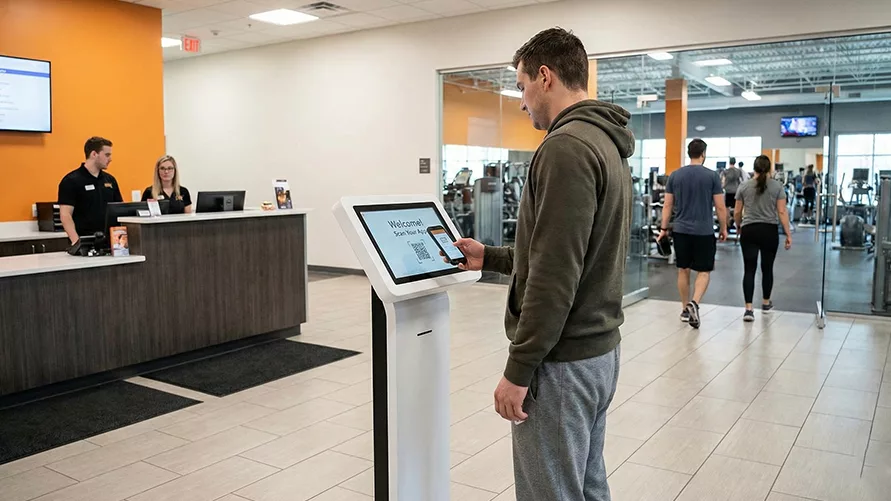Selling a gym is not like selling used equipment—or a few old treadmills. It is selling your livelihood. Maybe even your life’s work. You have built a community, routine, and brand: rep by rep, class by class, and now you are thinking it’s time to move ahead. Whether you are planning to retire, pivot into something new, or finally take a breath, you should sell smart. Not fast. Not sloppy. Definitely not at a loss.
Yet so many gym owners do just that. They sell emotionally, unprepared, and blindly – and they pay for it: a bad price, messy handovers, and regret.
But this piece will ensure you sell your gym business without making costly mistakes and garnering regrets. We will walk you through to prep your finances, time the market, protect yourself legally, and make a confident and profitable exit.

Know what your gym is really worth, not just what it feels like
It is tempting to value your gym based on passion and pride. But buyers don’t pay for blood, sweat, and tears. They pay for profits, systems, and potential.
Start with your EBITDA, earnings before interest, taxes, depreciation, and amortization. That is the baseline for most buyers. Healthy gyms tend to sell for 3x to 5x EBITDA, depending on factors like location, systems, team, and member retention.
Also factor in:
- Equipment ownership and condition.
- Real estate (if included).
- Brand equity.
- Existing contracts and recurring revenue.
- Digital presence and software systems.
The better your documentation and financial transparency, the higher the trust and often the higher the offer.
Time it right (calendars affect your paycheck)
Selling a gym in Q1 (first quarter after New Year) when membership peaks? Smart. Trying to sell in July when attendance is down? Not so much.
Buyers want momentum. Your recent growth trends matter as much as long-term averages. If you have been recovering from a dip (like post-pandemic challenges), it may pay to wait another quarter or two and show solid performance before listing.
The best time to sell?
When your gym is performing well, membership is climbing, and your systems are stable without you being hands-on every day. That is when buyers get excited and pay up.
Get your books in shape, just like you tell clients to do
If your financials are disorganized, you are basically telling a buyer, “Good luck figuring it out”. That’s a turnoff and a deal killer. So, clean up:
- Three years of profit & loss statements.
- Tax returns.
- Balance sheets.
- Revenue by category (classes, PT, memberships, retail)
- Member churn and retention data.
- Payroll summaries.
Also highlight recurring revenue: EFTs, auto-renewals, prepaid packages. Predictable cash flow is gym-selling gold.
Pro tip: Hire a CPA or gym-savvy financial advisor to clean things up before listing. It is like hiring a coach before stepping onto a stage, you want to look your best.
Identify the right buyer: not everyone is a fit
Different buyers want different things.
- Individual operators might want to buy a lifestyle business.
- Franchise groups or investors may care about systems and scalability.
- Corporate chains could buy to eliminate competition or enter a new market.
Knowing which buyers fit your gym model helps you frame your offer and set your price. Do not pitch to everyone. Pitch to the right people.
Legal prep: No surprises, no lawsuits, no panic
If your legal house is not in order, your sale will fall apart before it even starts. Start by reviewing your lease. Can it be transferred, extended, or renegotiated? Are there terms that scare off a buyer? Get your ducks in a row:
- Business licenses and permits.
- Employee agreements (especially for key staff and contractors)
- Vendor and supplier contracts
- Insurance policies.
- Pending disputes or liabilities
And yes, you may need to sign a non-compete clause; most buyers will insist on it. Be ready.
Read more: Gym lawsuits
Systemize everything, so they are not buying chaos
The less your gym depends on you, the more it’s worth. A buyer does not want your hours. They want your systems. Before listing, create:
- SOPs (Standard Operating Procedures) for daily operations.
- Staff roles and responsibilities.
- Member onboarding workflows.
- Payroll and scheduling processes.
And if you don’t already have one, get gym management software that handles billing, scheduling, and reporting in one dashboard. Your buyer wants plug-and-play, not notes and mystery files.
A recent fitness business insider report found that gyms using full-suite management software saw up to 30% higher valuations than those using manual systems.
Market the gym like it’s your last transformation campaign
You are not just listing equipment. You are selling a well-running business. Make your listing irresistible:
- Strong financials.
- Photos of a clean, active gym space.
- Highlights of retention stats, local reputation, niche market (e.g, HIIT, yoga, youth programs).
- Member testimonials.
- Branded digital assets (website, app, Instagram, etc).
Better yet, hire a broker who specializes in gyms. They will know how to find serious buyers and negotiate top dollar. Do not hand your sale to a generalist or a friend-of-a-friend realtor.

Nail the deal structure and protect what you’ve earned
Here is where the deal gets real. Do not just chase the top-line price. Look at the whole structure. Here are the things to lock down:
- Final purchase price.
- What’s included (equipment, software, branding, real estate)?
- Transition period (30-90 days, typically).
- Non-compete clause terms.
- Payment terms (lump sum, financing, or earn-out)
Bring in a business attorney to review every contract. You don’t want to lose what you have built in legal fine print.
Plan the exit because the real work is in the handoff
The moment you close is not the moment you walk away. The handoff is everything. Poor transitions kill gyms.
Create a clean transition:
- Introduce the staff to the new owner.
- Hand off passwords, vendor accounts, and contracts.
- Stay on for 30-60 days (if agreed) to train and stabilize.
If you do it right, your staff and members feel secure, the buyer feels confident, and your legacy stays intact.
Don’t forget the tax side, because net profit matters most
Selling price does not equal profit. You will pay taxes, capital gains, state, and possibly self-employment, depending on the structure. Work with a tax advisor early to estimate what you will keep and explore options like:
- Asset sale vs stock sale (big difference).
- Retirement rollovers or reinvestments.
- Deferred compensation or structured payments.
And the goal is: maximize your net payout, not just the sticker price.
Final thought: Exit strong, exit smart
This is not just another deal. It is your gym. Maybe your legacy. And selling it should leave you empowered, not regretful.
So don’t rush it. Prep your books. Polish your systems. Market smart. Negotiate clean. Exit with confidence. Because if you’ve done the work to build something great, you deserve to sell it the right way, on your terms.
And if you need help with prepping your gym for sale or organizing financials, the Wellyx’s team can help with the strategy further. The earlier and clear your start, the better your deal will be.
Let’s talk





